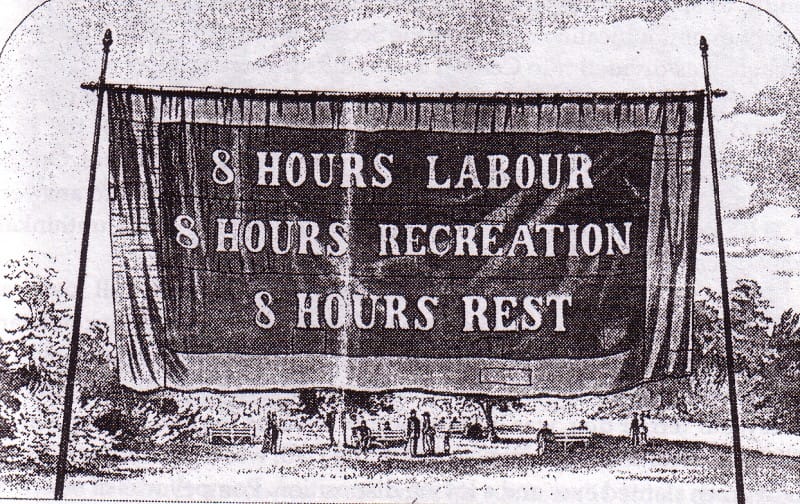Productivity paradox

I remember watching an advertisement about a cloud provider listing all the productivity gains one would enjoy by using it: "so you free up time to do whatever matters to you." Technology indeed frees up time because it enables to achieve the same outcomes in less time. We are full of modern means that create these kinds of productivity gains: think, for example, of video calls for a salesperson who otherwise would have spent the majority of time traveling.
Talking about video calls, it has been 20 years since they became a widespread technology. Still, the standard contract for a salesman has remained unchanged at 8 hours, which is even more surprisingly similar to what workers demanded more than 150 years ago, as the following image shows.

In economic terms, this makes sense because the comparative competition between companies who have to hire salespersons remains the same: they all have access to video call technologies, hence if someone starts working fewer hours, they will be less productive compared to the competitor working more hours using the same technology, and the former will go out of business. It is analogous to the mechanism behind the Jevons paradox (where technological progress increases the efficiency with which a resource is used, but the demand for that resource does not follow the same trend): the outcome will be the same just by substituting the demand for energy with labor and supposing that they have similar elasticity but adding the eight-hour limit.
In light of this consideration, the initial commercial should say: "you free up time to do more of the work you are already doing."
Don't get me wrong: productivity gains are behind our ability to live more comfortable and affordable lives, but sometimes we think there is no alternative. In reality, there is a tradeoff between material and time wealth, and being conscious about this would make us at least freer to choose.
